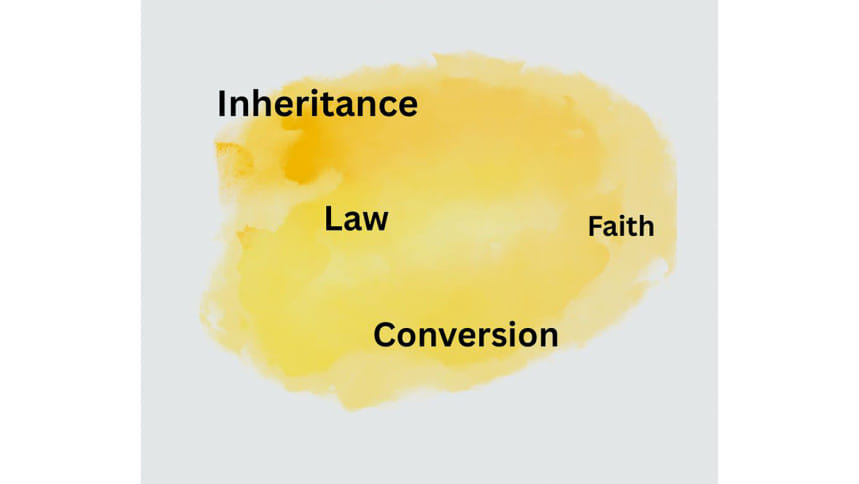Legal consequences of apostasy under Hindu Law

From the earliest periods of human civilisation, religion has served as one of the foundational elements of social identity and cohesion. Throughout history, apostasy (the abandonment or renunciation of a religious belief) or conversion from one religion to another, has often been perceived as undesirable from the religions' perspectives, particularly within the context of Hindu personal law.
Under traditional religious laws, conversion to another faith typically results in the loss of familial and succession rights. Recognising the severity of this issue, the British colonial government enacted reforms. Notably, in 1832, a Bengal Presidency Regulation declared:
"The laws of Hindu and Muslim religion shall not be permitted to operate to deprive such party or parties of any property to which, but for the operation of such laws, they would have been entitled."
Despite this proclamation, personal laws continued to apply in practice. Under the Dayabhaga school of Hindu law prevalent in Bangladesh, inheritance is heavily influenced by religious considerations. Consequently, a Hindu person who converts to another religion (such as Islam or Christianity) is still generally disqualified from inheriting property from Hindu family members.
The Hindu Inheritance (Removal of Disabilities) Act 1928, while receiving inheritance or any right or share in joint-family property, removed some disqualifications, such as those related to "disease, deformity, or physical or mental defect." However, it did not lift the bar pertaining to religious conversion.
The Caste Disabilities Removal Act 1850, introduced during British rule, aimed to protect individuals from losing inheritance rights due to caste change or religious conversion. However, this Act was repealed in Bangladesh by the Bangladesh Laws (Revision and Declaration) Act 1973. Its repeal has been affirmed by the judiciary, rendering it ineffective within the country's legal landscape.
In Palash Chandra Saha v Shimul Rani Saha (14 SCOB [2020] AD), the Appellate Division considered the issue of cross-caste adoption and ruled that the 1850 Act had no application in Bangladesh. This judgment reaffirmed the predominance of traditional Hindu law principles, including disqualifications based on conversion.
Thus, within the current legal framework in Bangladesh, apostasy from Hinduism remains a ground for disqualification from inheritance under Hindu personal law, particularly in the Dayabhaga school. That said, limited exceptions may still apply. For instance, if a converted individual is bequeathed property through a valid will, or if the conversion occurs after inheritance rights have already vested, such cases may warrant judicial consideration. As a result, since this issue has not been addressed by any other law of the state, the disqualification of converts from inheritance under Hindu law remains a legally and socially significant reality in Bangladesh.
The writer is a Senior Assistant Judge, Bangladesh Judicial Service.

 For all latest news, follow The Daily Star's Google News channel.
For all latest news, follow The Daily Star's Google News channel. 



Comments